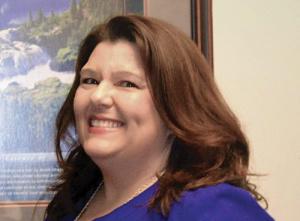“Day at the Kentucky PSC,” interview of Kentucky PSC Executive Director Gwen Pinson, pages 19 and 60-62, March’s Public Utilities Fortnightly

“For work/life balance reasons, we seem to attract good attorneys. We’ve hired six attorneys since I came aboard in October of 2017. The PSC has very interesting, challenging legal work, but still has hours that are relatively set. It’s not like a law firm, where you’ve got to work eighty hours a week. I worked in law firm private practice so I can relate.
But we are struggling to attract inspectors and financial analysts. What happens in John’s area is, we attract them, and then they are stolen away.
We send them to Oklahoma City for all this training, and then the industry can pay so much more than what we can pay. We lose them. It’s hard to attract experienced people. If you haven’t worked for a Commission or utility, you’ve never done this work.
We end up hiring a lot of younger folks straight out of school. But then that puts a bigger burden on our managers to train these folks.
We’ve also lost a lot of Staff members to retirement. There’s been a huge turnover. We lost about three hundred and ninety years of experience in 2017, and then another hundred and twenty-seven years of experience in 2018.
Other Staff used to be divided in electric and gas, and water and sewer. Typically, the electric and gas cases take more time and are more involved due to the size of the utilities involved, etc. One of the things I wanted to do when I got here was get people out of silos.
We did the same with the attorneys. I don’t want them specializing in just water or sewer cases, or just gas or electric cases. I want them to learn about all of the areas we regulate. If you have somebody specialize, and then that person leaves, there goes all of your knowledge of that area, and experience out the door. Our attorneys are doing different type of work, and we reorganized our financial analysts into rate design and revenue requirements branches.
There used to be separate revenue requirements, and rate design, within those classifications of electric and gas and water and sewer. Commissioner Mathews brought them all together, and then I took it further into revenue requirements and rate design. We got them out of the water and sewer, and electric and gas divisions of responsibility, altogether.”

